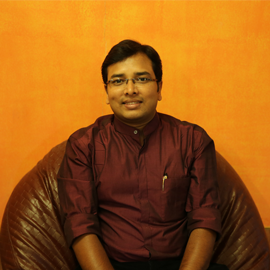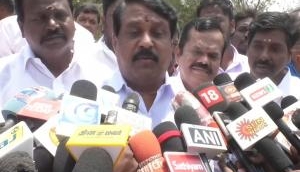SC can't dictate Assembly procedure: ex-Lok Sabha secy gen PDT Achary

The intervention
- The Supreme Court\'s intervention in the Uttarakhand political crisis resolved the matter
- However, its involvement in the legislature\'s affairs has left behind some constitutional questions
Expert opinion
- Former Lok Sabha secy gen and constitutional expert PDT Achary says a lot of what transpired is alien to the Constitution
- He says judiciary has the power to examine legislations, but the legislature is its own master when it comes to procedure
More in the story
- Should the Governor have been put in charge when President\'s Rule was temporarily lifted?
- What were the alternatives the SC could\'ve gone for?
The Supreme Court's intervention in the Uttarakhand political crisis may have resolved the matter, but it has left behind a few key constitutional questions.
The judiciary's involvement in the legislature's affairs is, in any case, a constitutional anomaly, but it is well-known that this was not the first such instance. What was new was in the specifics of the directions given by the top court for the conduct of the floor test.
Read- Uttarakhand: Overjoyed Congress & Harish Rawat mull early elections
Catch spoke to former secretary general of the Lok Sabha, PDT Achary, one of the country's foremost constitutional experts, on the issue. Achary was clear in his opinion that many of the procedures that took place in the Uttarakhand Assembly on 10 May are alien to the Constitution.
Here is the conversation in full.
Do you see any constitutional incongruity in what happened in the Uttarakhand Assembly?
Before coming to that, I want to ask, how could the Centre impose President's Rule in the state only because the Speaker decided to reject the demand for voting on the Appropriation Bill and conducted a voice vote instead? I say this because the Appropriation Bill is passed by a voice vote in all legislatures, and the Speaker's decision to reject the voting demand was right.
Further, passing of the Appropriation Bill is linked with the passing of grants related to various ministries. The Bill can be passed only after the grants are passed. Members are not permitted to move any amendments to the Appropriation Bill because there cannot be any change in grants after the House has passed them.
Can the House reject the Appropriation Bill? In my opinion, no. How is it, then, that Opposition members demanded Division? It is impermissible.
Going beyond the merit of the Presidential proclamation for now, what is your assessment of the constitutionality of the events that transpired in the Assembly that day, as laid down by the apex court?
The Constitution provides for separation of powers. The judiciary has the power to examine legislations, but the legislature is supreme in its functioning and framing of rules for its functioning. The House is its own master and no other authority can encroach upon this autonomy.
The Jagdambika Pal case is often cited in this context, but even then, the SC was clear in its ruling that the case will not be a precedent for the future. Of course, it was repeated in Jharkhand in 2005, and this is the third time this has been done, but it is a clear case of encroachment.
The SC cannot dictate Assembly procedure as it did. The Speaker alone has that power.
Article 142 is often cited in such instances, as it empowers the Supreme Court to pass any order that it deems necessary for doing 'complete justice' in any case before it. Doesn't it apply here?
Article 142 indeed gives the SC enormous powers, but this matter involves a key constitutional institution, the legislature. The SC should exercise caution. Order a floor test, at best, if it has to, but then leave the procedure to the Speaker.
Also read: Uttarakhand Speaker expels rebel Cong MLAs; Can CM Rawat smile now?
Incidentally, such detailing also indicates that the SC doesn't have faith in the Speaker.
This was also possibly the first time that the SC directed lifting of the President's Rule for a couple of hours and then restoring it, only to revoke it subsequently. What do you feel about this?
First of all, imposing and lifting President's Rule is the President's prerogative. The SC's role is only to rule on the legality of its imposition in specific cases. In this case, the SC stepped out of its jurisdiction by lifting it for 2-3 hours. The top court can strike it down, but cannot lift it temporarily and impose it again. Such a provision is unknown to the Constitution.
Everybody is behaving in a very curious manner in this case. If the government of the day has sought the confidence of the House and received it, there is no point in re-imposing President's Rule.
Read- Uttarakhand: CBI in a fix over probe into Rawat sting
Another peculiar part of the SC order was that during the period when "Presidential proclamation shall remain in abeyance", the "Governor shall remain in-charge of the State". Can the Governor be made "in-charge" when the Presidential proclamation is suspended temporarily? Who does the Governor report to in such a case? Isn't the Governor the President's representative in the state?
When the President's Rule is lifted, the system that existed before it has to come back to life. The Governor cannot be in charge. The popular government will be automatically revived and the Chief Minister will then seek confidence of the House in his government.
That's another point to be noted in this episode. It is not clear to me whether confidence was sought in the council of ministers or an individual, the Chief Minister. It cannot be sought in an individual.
What alternatives could the SC have resorted to?
The best course of action for the SC would have been to decide the issue on the merits of the case, which is the legality of the President's Rule. As per the Bommai case, when President's Rule is struck down, the government is automatically revived. There wouldn't have been any need for a floor test in that case. A lot of confusion has been created now.
Edited by Shreyas Sharma
More in Catch:
Exit polls: Assam to BJP, Bengal to Mamata, TN can go either way
Can't digest this: after wearable tech, it's time for swallowables
Panama Papers name big shots in top Indian newspapers
Uttarakhand: CBI in a fix over probe into Harish Rawat sting
First published: 17 May 2016, 8:43 IST






![BJP's Kapil Mishra recreates Shankar Mahadevan’s ‘Breathless’ song to highlight Delhi pollution [WATCH] BJP's Kapil Mishra recreates Shankar Mahadevan’s ‘Breathless’ song to highlight Delhi pollution [WATCH]](https://images.catchnews.com/upload/2022/11/03/kapil-mishra_240884_300x172.png)

![Anupam Kher shares pictures of his toned body on 67th birthday [MUST SEE] Anupam Kher shares pictures of his toned body on 67th birthday [MUST SEE]](https://images.catchnews.com/upload/2022/03/07/Anupam_kher_231145_300x172.jpg)






